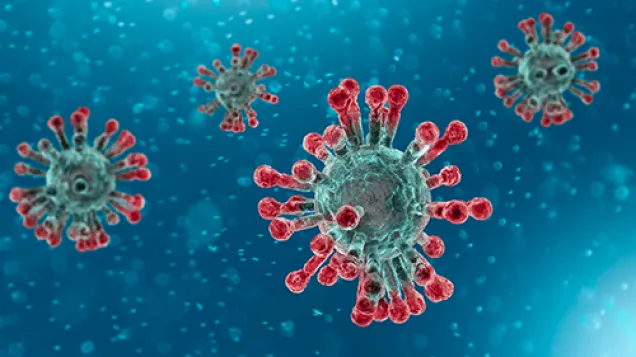Guidance on infection prevention and control of COVID-19 in migrant and refugee reception and detention centres in the EU/EEA and the UK
Public health guidance
The main objective of this guidance is to provide scientific advice on public health principles and considerations for infection and prevention control of COVID-19 in migrant and refugee reception and detention centres in the European Union and European Economic Area (EU/EEA) and the United Kingdom (UK).
The target audience for this guidance includes national, regional and international policymakers, public health and healthcare planners, staff working in migrant/refugee reception and detention centres, health researchers, health professionals, and civil society organisations working with migrant populations.
The target audience for this guidance includes national, regional and international policymakers, public health and healthcare planners, staff working in migrant/refugee reception and detention centres, health researchers, health professionals, and civil society organisations working with migrant populations.
Executive Summary
- The COVID-19 pandemic exacerbates the vulnerabilities of migrants and refugees living in reception and detention centres.
- Whilst there is no evidence to suggest that SARS-CoV-2 transmission is higher amongst migrants and refugees, environmental factors such as overcrowding in reception and detention centres may increase their exposure to the disease. Outbreaks in reception and detention centres can also spread quickly in the absence of adequate prevention measures.
- All principles of physical distancing applied in the community should be applied in migrant reception and detention settings. If physical distancing and risk-containment measures cannot be safely implemented, measures to de-congest and evacuate residents should be considered.
- In addition to physical distancing, hand and respiratory hygiene are the main non-pharmaceutical measures that should be considered and implemented in migrant reception and detention centres.
- Providing free and equitable prevention, testing, treatment and care to migrants and refugees in settings of reception and detention is critical at all times, but particularly in the context of COVID-19.
- There is no evidence that quarantining whole camps effectively limits transmission of SARS-CoV-2 in settings of reception and detention, or provides any additional protective effects for the general population, outside those that could be achieved by conventional containment and protection measures.
- Migrant and refugee reception and detention centres should be given priority for testing, due to the risk of rapid spread of SARS-CoV-2 in these settings. All individuals with COVID-19 compatible symptoms should be tested on arrival, and possible, probable or confirmed COVID-19 cases not needing hospitalisation should be isolated or separated from others in the premises. Contact tracing should occur for all cases identified as positive. Asymptomatic new arrivals can also be considered for testing to reduce the risk of introduction of cases in reception and detention centres; however, a negative test does not exclude the possibility of the person becoming infectious in the next 14 days.
- Communicating about the risks and prevention of COVID-19 with migrant and refugees currently housed in reception and detention centres requires community engagement and health communication strategies that are adapted to meet the different language, cultural and literacy needs of the different populations.
Publication file
Guidance on infection prevention and control of coronavirus disease (COVID-19) in migrant and refugee reception and detention centres in the EU/EEA and the United Kingdom
English (650.95 KB - PDF)
Infographic
Visual on infection prevention and control in reception and detention centres for migrants and refugees
Latest guidance on COVID-19
Surveillance and monitoring
Share this page


